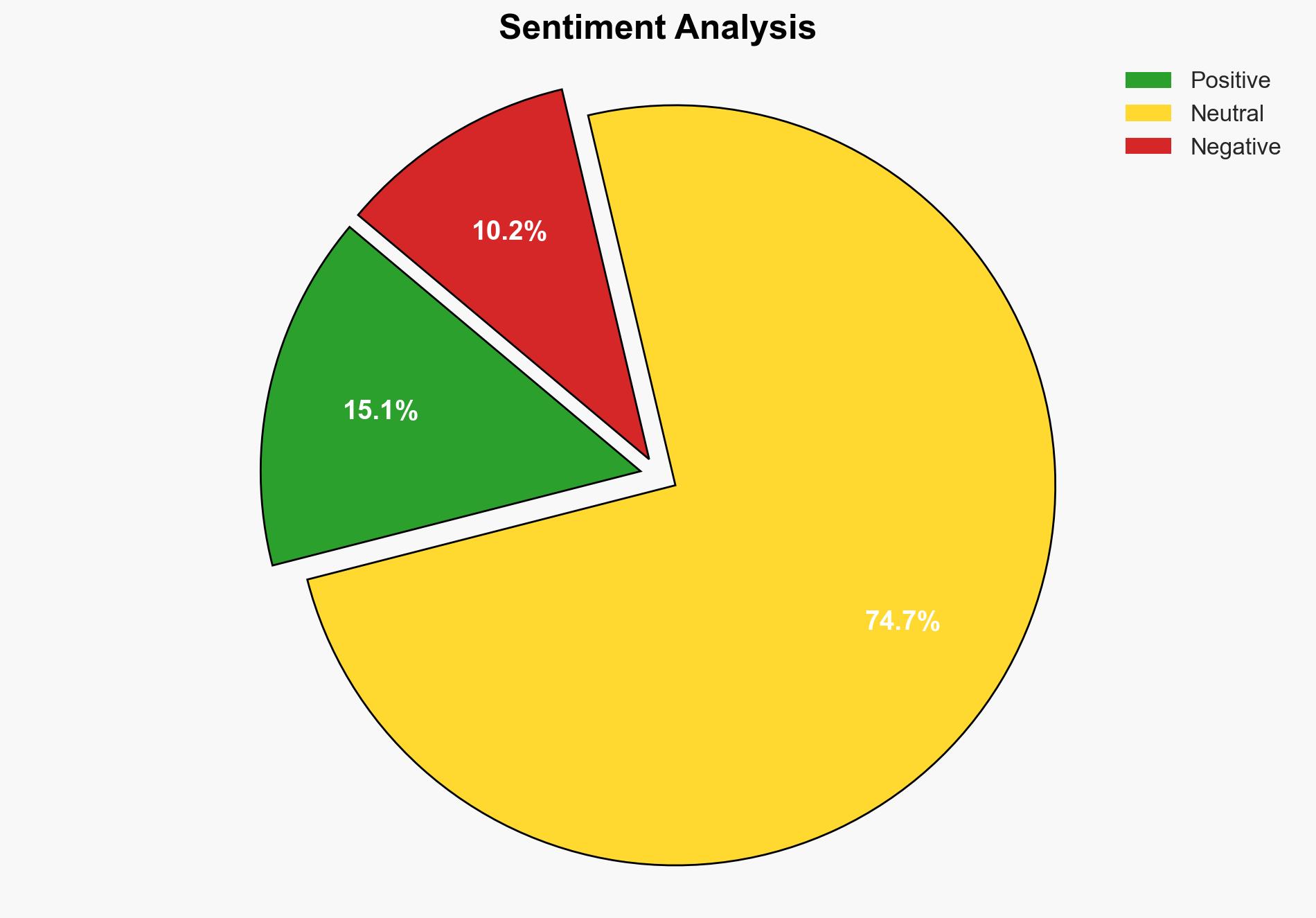American Glezmann Released By Taliban After Visit To Kabul By Senior US Official – Globalsecurity.org
Published on: 2025-03-21
Intelligence Report: American Glezmann Released By Taliban After Visit To Kabul By Senior US Official – Globalsecurity.org
1. BLUF (Bottom Line Up Front)
The release of George Glezmann from Taliban custody follows a strategic visit by a senior US official to Kabul. This development marks a significant diplomatic achievement and highlights ongoing negotiations between the US and the Taliban. The release is perceived as a goodwill gesture, potentially improving US-Taliban relations. However, the situation underscores the complexities of diplomatic engagements with the Taliban, who remain unrecognized as the legitimate government of Afghanistan by the US.
2. Detailed Analysis
The following structured analytic techniques have been applied for this analysis:
General Analysis
The release of George Glezmann, an American citizen detained by the Taliban, was facilitated by diplomatic efforts involving senior US officials. The visit to Kabul by a senior official, possibly aimed at negotiating Glezmann’s release, reflects a strategic approach to addressing hostage situations. The US continues to engage with the Taliban despite not recognizing their government, indicating a pragmatic approach to securing American interests and citizens abroad. The release is a positive step but highlights the ongoing risk of wrongful detentions in conflict zones.
3. Implications and Strategic Risks
The release of George Glezmann has several implications:
- National Security: The event underscores the need for robust strategies to protect citizens abroad, particularly in regions with unstable political climates.
- Regional Stability: The US-Taliban negotiations may influence regional dynamics, impacting neighboring countries and international relations.
- Economic Interests: Improved relations could open avenues for economic engagement, though risks of instability remain.
Strategic risks include potential retaliatory actions by the Taliban or other groups, and the precedent set for future negotiations involving detained individuals.
4. Recommendations and Outlook
Recommendations:
- Enhance diplomatic channels and negotiation strategies to address future detentions effectively.
- Implement measures to safeguard citizens traveling to high-risk areas, including travel advisories and support systems.
- Consider regulatory frameworks to manage interactions with unrecognized governments while protecting national interests.
Outlook:
Best-case scenario: Continued diplomatic engagements lead to improved US-Taliban relations, reducing the risk of future detentions and fostering regional stability.
Worst-case scenario: The release prompts backlash from hardline elements within the Taliban, resulting in increased tensions and potential retaliatory actions.
Most likely outcome: The release serves as a temporary improvement in relations, with ongoing negotiations required to address broader geopolitical challenges.
5. Key Individuals and Entities
The report mentions the following significant individuals:
- George Glezmann
- Zalmay Khalilzad
- Adam Boehler
- Marco Rubio
- Ryan Corbett
- William McKenty
- Khan Mohammed
- Mahmood Habibi





